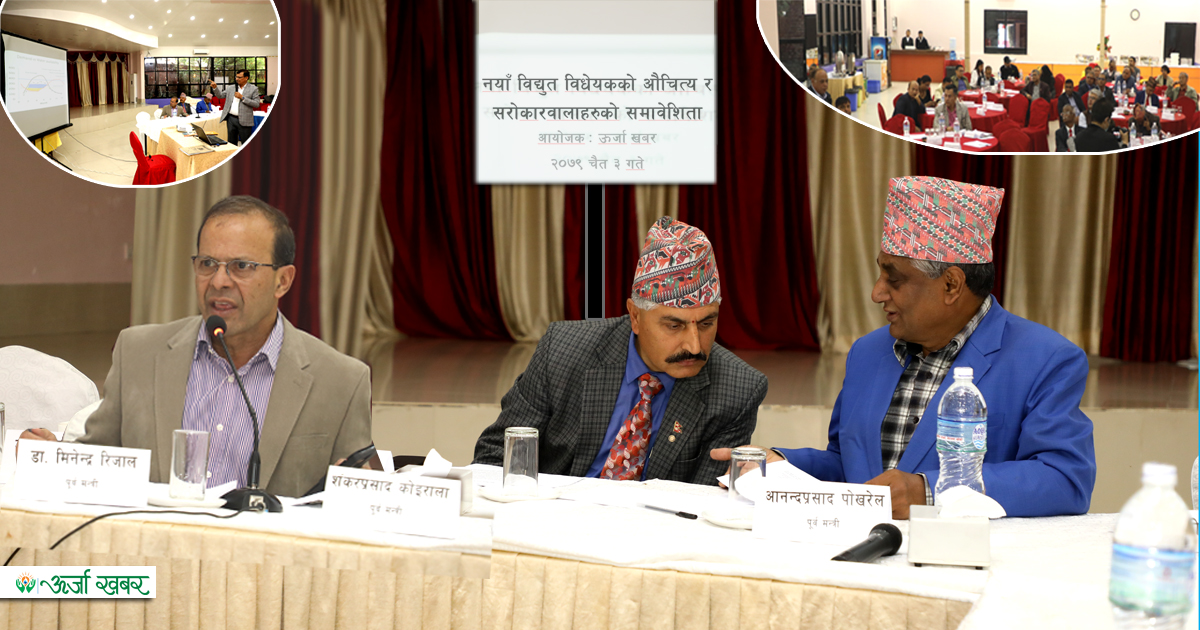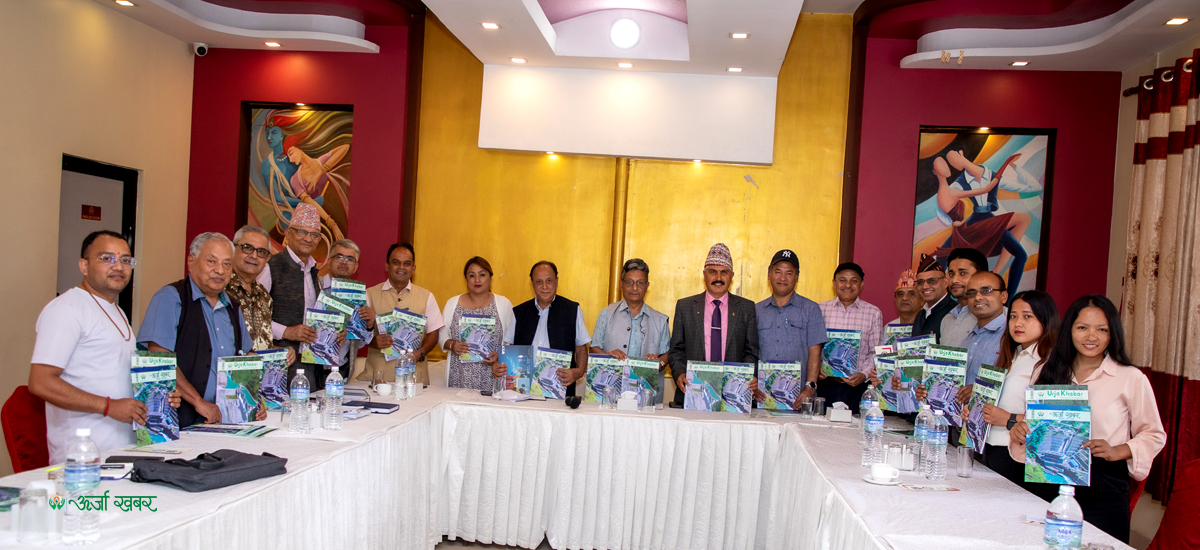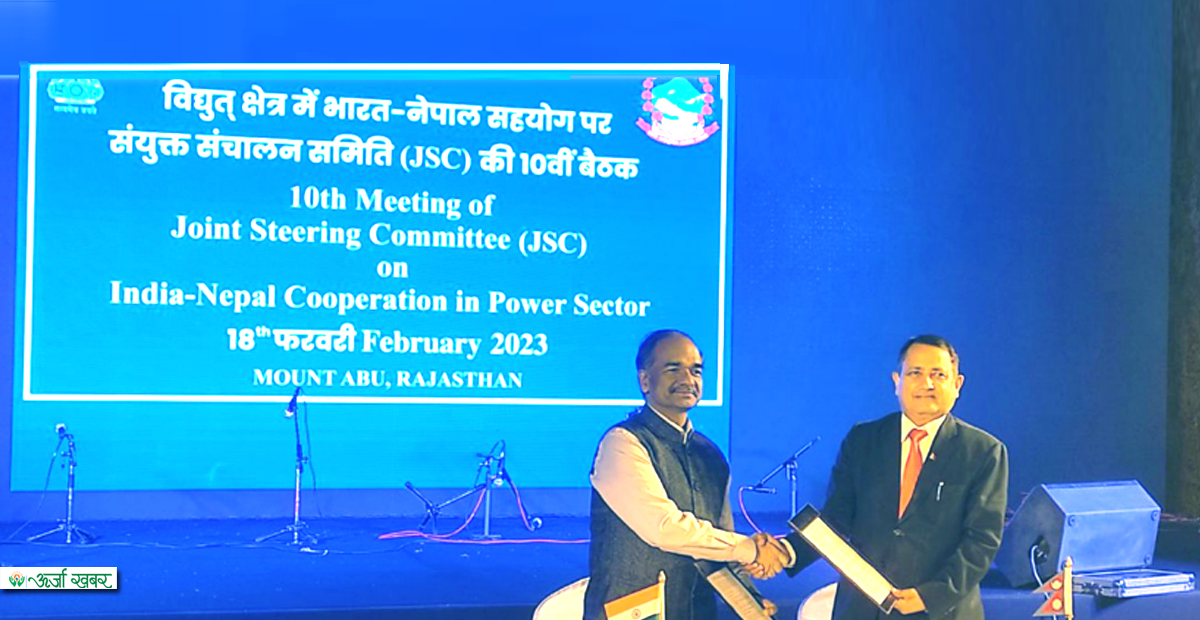Energy Update
Stakeholders and energy experts urge authorities concerned to expedite the electricity bill that has hung in balance
The proposed electricity bill should address emerging issues of climate change, deregulation, and federalism

Kathmandu; Stakeholders and analysts of the energy sector have stressed on the need for incorporating clauses, which can address the issues of the emerging time in the proposed Electricity Bill.
The government had stepped up to amend the Electricity Act-1992 has envisioned amending and integrating existing electricity laws. Among others, the bill, which has remained undecided in parliament, has maintained provisions to provide licenses to the private sector to trade in electricity within and outside the country.

Speaking at an interaction organized by Urja Khabar, Former Finance Minister Shankar Prasad Koirala said the government needs to hand over electricity generation to the private sector. While focusing on promoting the role of the private sector, the government should not look after micromanagement, license-related issues, and right of way. Rather, it should consider making a strong deal with India, according to Koirala.
Koirala also sought the need for endorsing a separate act of electricity transmission lines to remove the dilemma on the issue of the ‘right of way.’ “While formulating one act, its norm should not supersede of conditions of other act.”

Former defence Minister and Nepali Congress Leader Minendra Rijal said the demand and supply management system needs to be developed. “How to build up the long-run perspective, how to readjust in the context of practicing federalism, and how to settle contradictory matters are needed to be addressed by the new act,” Rijal said.
Suman Prasad Sharma, former secretary of the government, said increased investment in infrastructure development of energy-related projects is highly required at present. “The proposed act should focus on another energy sector, rather than just on hydropower,” he added.
The proposed act is often criticized for giving priority more on hydroelectricity over another form of energy. Rajendra Dahal, a senior journalist who is also a advisor Urja Khabar, said the government has considered small streams only for hydropower prospects. “However, they have many more uses, not just the hydropower production,” he said.
Narayan Gyawali, chairman of National Federation of Community Electrification Consumers Nepal, said the electricity bill should incorporate matters related to distribution, electricity tariff, and authority concerned, among others.
Ngamindra Dahal chairman of Nepal Water Conservation Foundation (NWCF), said the current act does not clearly state about the risk-sharing mechanism related to hydropower production. “As the risk of climate change is growing, who will bear the unforeseen risk to be borne under the heading? Such matter of concern should be addressed by the new act.”
The private sector has sought government intervention to end the monopoly of the Nepal Electricity Authority in the country’s energy business. Batu Lamichhane, chairman of Singati Hydro Energy, said it is quite unfair that the private sector has been given an excess burden of financial liabilities to be settled to the government while they involve in the energy business.
Conversation
- Info. Dept. Reg. No. : 254/073/74
- Telephone : +977-1-5321303
- Email : [email protected]














